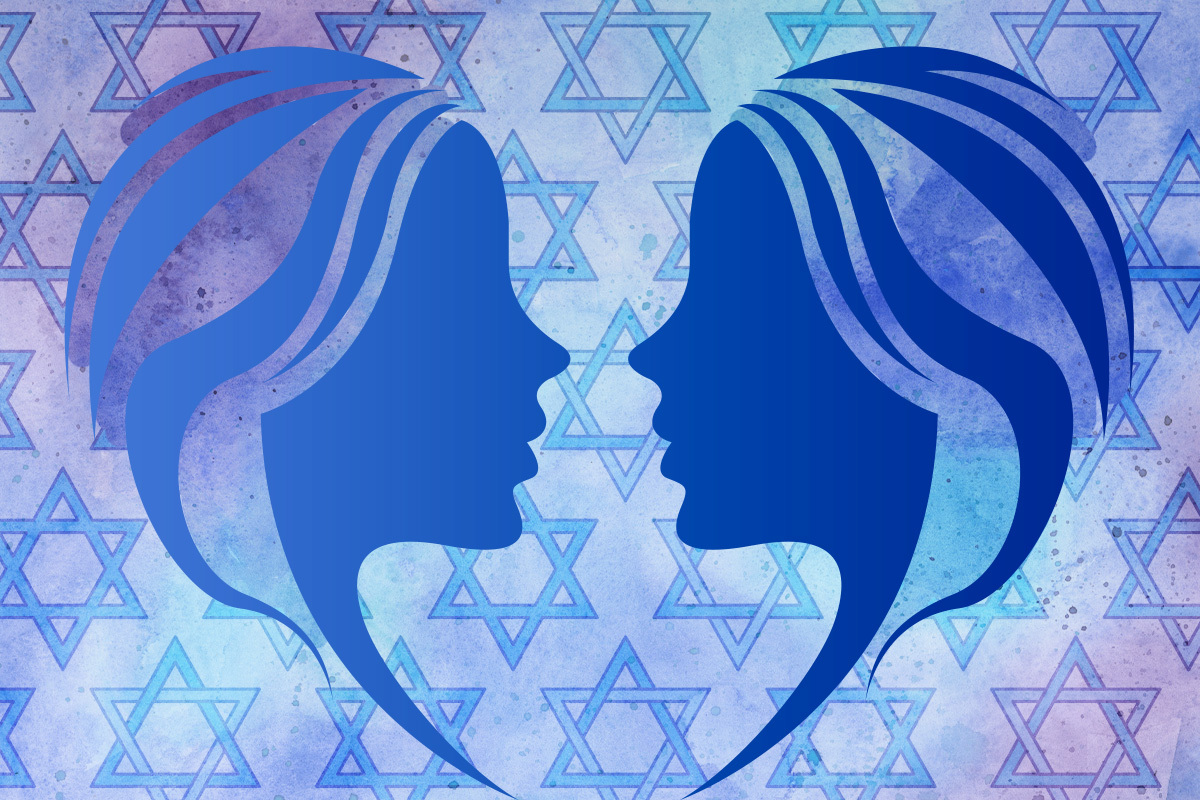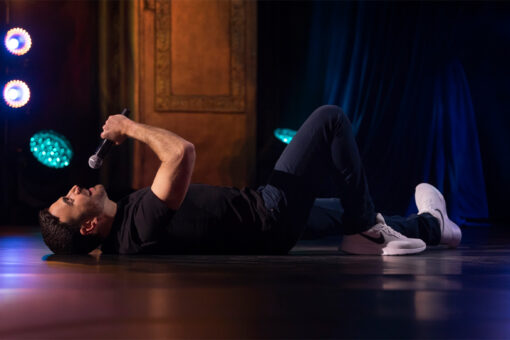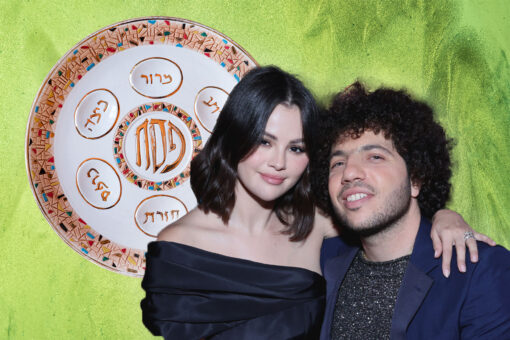A few weeks ago, I was schlepping through Brooklyn with JP, my platonic bashert. At 16, we had come out as queer to one another. At 20, we simultaneously expressed — with no previous discussion — our intentions to convert to Judaism. Shortly after this last conversation, I would begin to come to terms with my transness, and so my gender transition would coincide with my conversion. When I first met with a rabbi, short-haired and stubbly, I introduced myself as Aaron (he/him), yet later waded into my conversion mikveh as long-haired and smooth-faced Abby Jo (she/her). Now, here we were: Two queer Jews. His scarlet kippah matched his lipstick, and my Magen David necklace complimented my sundress.
As we walked, JP told me about a recent conversation he’d had with a cantor friend. When he mentioned that he’d converted, she blinked with surprise. “Really? Well,” she added conspiratorially, “you pass.”
We both understood this as a compliment — I think most Jewish converts would. I’ve previously written about my experience with imposter syndrome as a Jewish convert but have since learned how universal it is for Jews of all walks of life. As JP likes to remind me: “Worrying that you’re not Jewish enough is one of the most Jewish things you can do.” But is gender the same? As someone who went through the conversion process while also transitioning, I inevitably reflected on the way these journeys intersect, and differ.
The Kabbalah spoon-feeds us the heartwarming myth that converts are simply Jewish souls who dislodged from the Tribe in a past life and are finding their way back. A Jew is a Jew is a Jew, and always has been. Similarly, many trans people prefer referring to their pre-transition self using their present gender terms (i.e., a trans man saying, “When I was a little boy…”). Personally, I struggle with both of these ideas. On the one hand, when I think back to my past thoughts and feelings, they read to me as textbook Jewess: My hunger for learning, my incessant questioning of authority, the times I felt like a queen when I tried on my mom’s heels and lipstick. But I also must acknowledge my privileges in having been raised as a Christian male. This means I also have experiences that many other Jewish women do not.
For example, as both a woman and a Jew, I’ve had to learn to be afraid. When I attended my first Hanukkah service, I wondered at the policeman manning the entrance. The churches I was raised in venerated the police but never needed them guarding the entrance from violent conspiracy theorists who thought we should be purged. I didn’t have to finely tune my ears to antisemitism. No longer — I’m keenly aware of how visible my Jewishness is. And although I still proudly wear my Magen David necklace in public, it burns on my chest like hot metal. Walking home alone late at night used to be a cinch. But as the number of people who call me “ma’am” has risen, so too has the probability of my actually having to employ those childhood jiu-jitsu lessons on a would-be assailant. Upon realizing the privilege I’d grown up with, I immediately assumed I should hold back. But one interaction in my junior year of college pushed me to view my privileged birthed brazenness as a blessing.
I attended a small, liberal arts college whose demographics swung largely female. Yet a friend keenly observed how the one or two male students in any given class often talked more than any of their female classmates combined. Once my eyes were opened, I couldn’t un-see it: men dominating discussions not just in the classroom, but everywhere. Even more jarring, I began to notice how much conversational real estate I consumed. One day, I realized I’d talked for minutes on end in class only after the fact. I raced to catch up with girlfriends on the way to the dining hall and apologized for stealing so much class time. To my surprise, they dismissed my concerns. “It’s actually empowering to hear a woman talking so much,” one of them said. “It makes me wanna talk more in class.” The others agreed.
I was floored.
Girls are often taught to be silent, but I had a boy’s upbringing that taught me to speak freely. Upon realizing this, I thought that this meant that I should restrict how much I spoke. But now I realize that learning about and acknowledging one’s privilege is only half the battle: The other half is empowering those who’ve been silenced, to speak. Similarly, perhaps my boldness can help those raised Jewish to take up more cultural real estate.
Converts and trans people are the answers to identity-based “What ifs?” What if a woman was raised with the privilege of a man? What if a Jew was raised with the privilege of a Christian? What if society empowered Jewish people to deal in a currency of beauty and pride rather than fear and shame? Transphobia, antisemitism and an extra dose of imposter syndrome make transition and conversion daunting prospects. But I choose to also embrace the boldness that my privilege gifted me — not to dim it, but to hopefully use it as an example of what womanhood and Jewishness can be if afforded the same privilege as manhood and Christianity. I’m reminded of the now-famous phrase, “Black is beautiful,” coined by Civil Rights activist Kwame Ture. This later inspired gay rights activist, Frank Kameny’s phrase “Gay is good.” These chants seem to define pride in the face of hatred as tantamount to saying “we are here, we deserve to be, and we are flourishing.” Perhaps transition and conversion can inspire us all to take up more space at the table.



